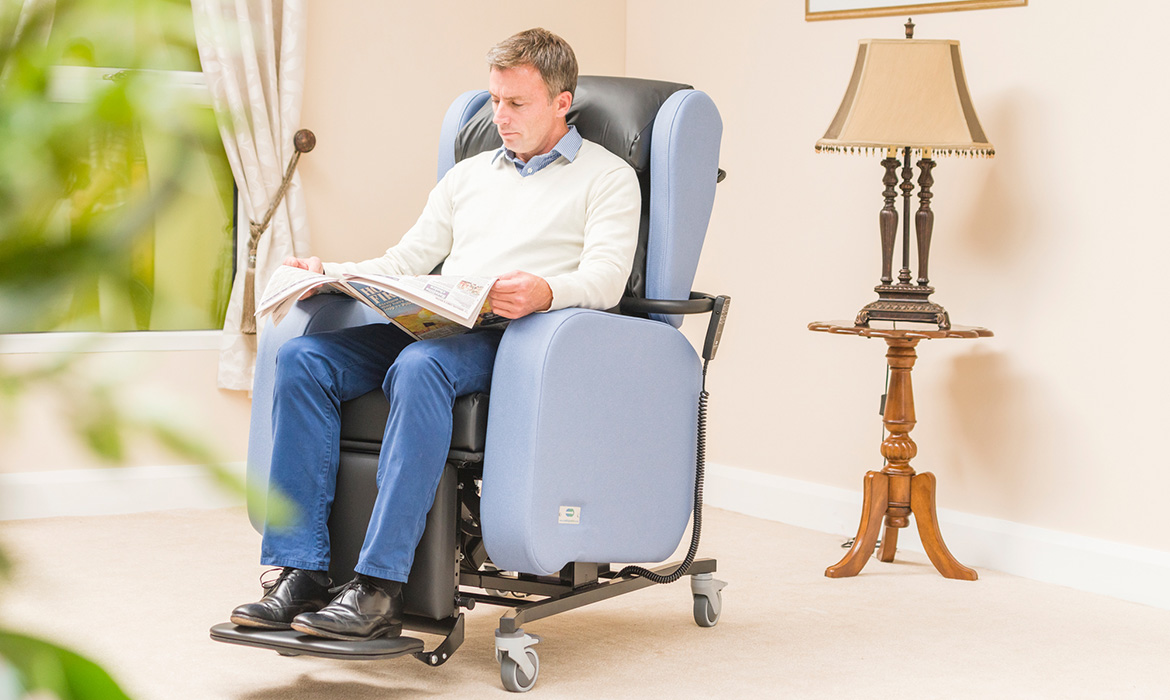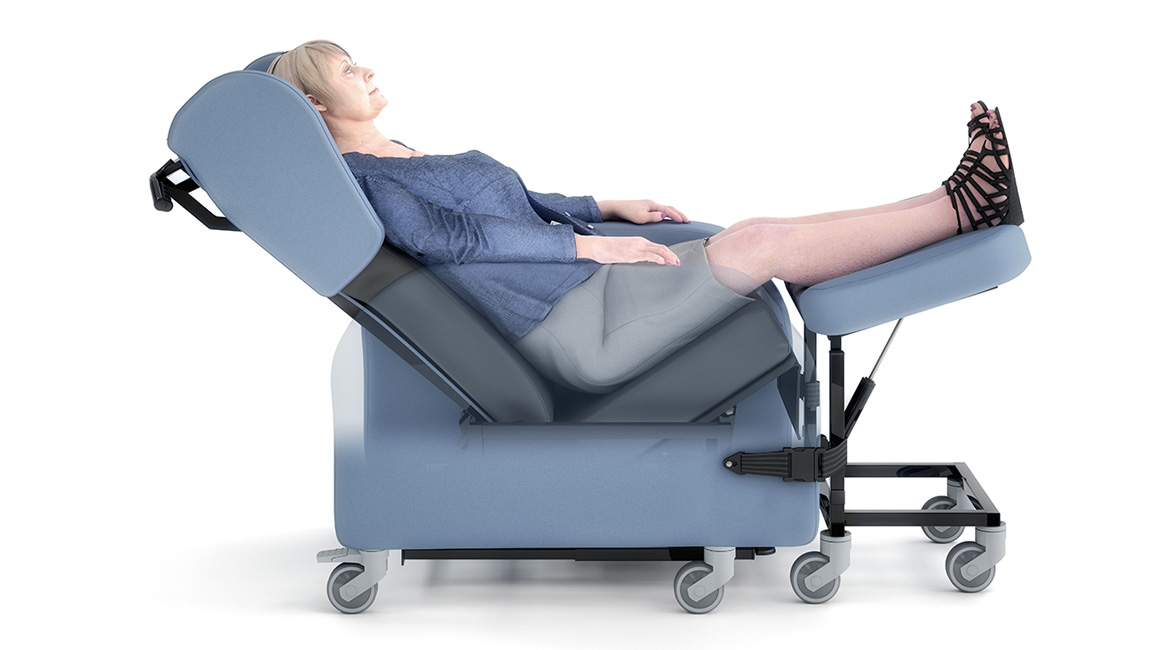Empowering Long Term Care Residents: The Role of the Atlanta Chair in Dementia Care Settings
Author: Dawn Wiggins, RPN, MSc
The Atlanta™ chair was accredited with a class 1A rating from the University of Stirling's Dementia and Design Centre, and stands out as a prime example of evidence-based design improving the lives of those with dementia. Addressing both psychological and physical challenges, its features make it a crucial piece of adaptive furniture.

In dementia, the visual field undergoes significant changes that compromise an individual’s safety awareness. Early on, the experience is similar to looking through a porthole on a ship, with a reduction in peripheral vision. This progresses to a sensation like wearing a scuba mask, followed by a narrowing of the field of view comparable to looking through binoculars. As dementia progresses, individuals not only continue to experience a binocular-like field but also start encountering issues with object recognition. Ultimately, they are left with a vision comparable to looking through a monocle.
This gradual but significant vision change underlines the importance of designing a chair with contrasting colors between the seating area and the sides, as is the case with the Atlanta chair, thereby aiding users in identifying where to sit.
As dementia progresses, individuals often experience a phenomenon known as "turning into oneself," where muscles and limbs contract, causing them to assume a fetal position. This is exacerbated by issues with proprioception, the body's ability to sense its position in space, which is compromised in late-stage dementia. The Atlanta chair's design, particularly the removable leg rest, accommodates these physical changes, providing necessary support and positioning to mitigate challenges associated with muscle contraction.
“The chair also serves as a therapeutic intervention, offering a comfortable and safe alternative to prolonged bed rest.“
Prolonged bed rest for individuals in the later stages of dementia can lead to serious health consequences, including organ compression, reduced cardiac output, an elevated risk of pneumonia, and issues related to skin integrity, such as pressure ulcers. The chair offers a viable and comfortable alternative, encouraging individuals to sit upright rather than being confined to a bed.

Ease of use is highlighted by the chair's quick adjustment capability on-site, taking under a minute without tools. In terms of infection control, the hygienic design minimizes entrapment areas, inhibiting bacterial growth.
A Seat at the Table of Innovation: The Atlanta Chair’s Contribution to Holistic Dementia Care
The Atlanta chair exemplifies the potential of evidence-based design in dementia care. Its thoughtful features and robust construction address both psychological and physical challenges, providing a safer and more comfortable life. Recognizing and incorporating such solutions is crucial for innovative and effective dementia care environments. The chair's approval by the University of Stirling’s Dementia and Design Centre underscores its value in the evolving field of dementia care, showcasing how research and design can enhance the well-being of individuals with dementia, especially in managing the challenges associated with the progression of the disease.
Dementia Care Solutions Clinical Focus Guide
Due to the progressive nature of dementia and the potential presence of other chronic underlying conditions that may already affect mobility, the declining ability of the person to understand the task to be completed, along with communication challenges, it is easy to appreciate that hygiene care, mobility, and safe moving and handling are potentially complex aspects of supporting people with dementia.
Download our Dementia Care Solutions Clinical Focus Guide and learn about:
- Person-centered care for people living with dementia
- Overview and summary of needs when assessing hygiene and mobility risk
- Care recommendations for hygiene, mobility, and handling in dementia care
- Case examples from the Arjo Dementia Care portfolio
DOWNLOAD DEMENTIA CARE SOLUTIONS CLINICAL FOCUS GUIDE
Talk to an Arjo Solutions Expert
Learn more about Arjo’s wide range of dementia product solutions by speaking with an Arjo Solutions Expert, who will respond to your request in a timely manner.
 About the author
About the author